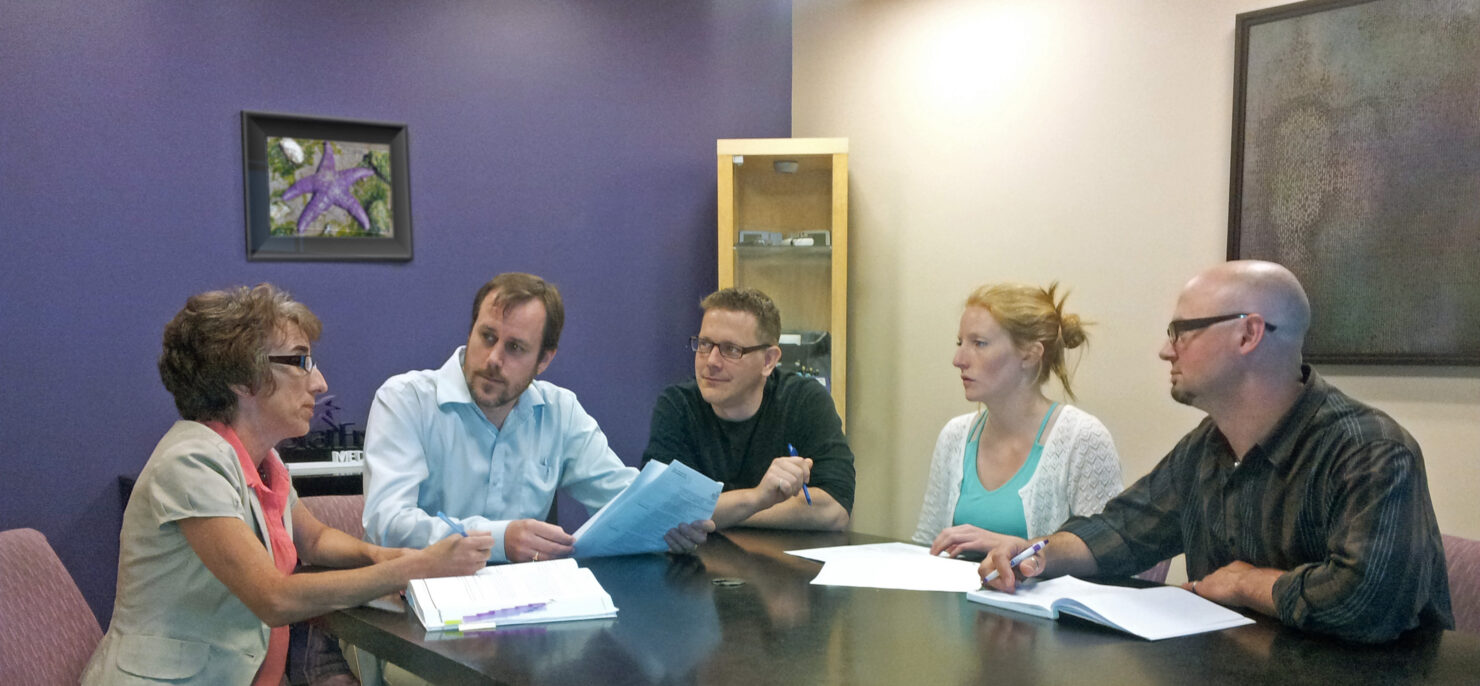
How a Project Management Office (PMO) Helps Effective Medical Device Development
The term Project Management Office (PMO) appears ever more frequently in engineering firms, but is still not well understood. So what is a PMO, how do they impact medical device development, and what does the PMO look like at StarFish?
In other words, why bother?
For organizations that do not use a Project Management Office (PMO), there are two main reasons for creating a PMO in a project-based organization: (1) to grow and support Project Managers and (2) to promote good PM practice. A PMO increases efficiency by effectively streamlining the management of projects which translates into client satisfaction, realization of business goals and overall corporate project cost reduction.
The Project Management Office (PMO) achieves these results by:
- Standardizing design filenames and folder organization
- Developing templates for scope management (project management plan, change request, decision request, regulatory scope), risk management, cost tracking, communications management (status report) and project closure
- Promoting the adoption of processes related to information sharing, quality acceptance criteria, task tracking, project risk management, and lessons learned
- Ensuring contingency development for HR coverage in the event that key personnel are unavailable
- Reminding PMs to regularly review the strategic alignment of development efforts with business goals for all clients
Working in partnership with client representatives of a wide range of start-up and mature medical device companies - Providing PM advice to clients managing their own projects
- Ensuring that clients can expect consistency in project execution, engineering staff performance, and quality of deliverables
- Acting as a “sounding board” for proposals and estimates of project costs and duration
Guiding and growing junior PMs
Providing in-house training for Project Management SOPs
Leading by example through effective management of projects reaching into the millions of dollars
According to the Project Management Body of Knowledge® 5th ed. of the Project Management Institute®, a Project Management Office (PMO) is:
“An organizational structure that standardizes the project-related governance processes and facilitates the sharing of resources, methodologies, tools and techniques”. [1]
From a day to day operational perspective, the PMO is responsible for the alignment of projects with corporate strategies. It ensures appropriate enterprise portfolio governance, i.e. focusing on the right project at the right time with the right people to address the most important and urgent business needs.
More specifically, it is a project support office that harmonizes the needs of Project Managers, clients (Project Owners) and other important stakeholders such as product end users to ensure the project outputs fulfill requirements efficiently.
The PMO provides guidance for systematic project management and promotes close monitoring of engineering development activities, regular reviews of target regulatory path and integration of medical device international quality standard for design documentation.
In large organizations, the PMO is also responsible for portfolio management by reviewing projects, prioritizing them, assigning Project Managers to projects and supporting them to obtain funding and/or financing.
Project Management Office (PMO) at StarFish
In the world of consulting, our PMO is a small entity staffed by one Senior Project Manager with engineering and product development background and extensive experience in managing technical and non-technical projects in a variety of industries. The Project Management Officer is a certified PMP (Project Management Professional®) who ensures adoption of PMI principles at all levels of project execution. The PM Officer develops and maintains project-specific templates and a formal, version-controlled Standard Operating Procedure (SOP) for Project Management as required by ISO 13485 [2].
The PMO provides support to all Project Managers (PMs) for consultation, advice and decision-making. The Project Management Officer meets individual PMs twice per month to review project progress and performance against baselines and to ensure ongoing alignment with project development goals. During these project meetings, PMs are asked to show evidence of task planning (work breakdown structure), risk management, scope control, cost tracking against budget and ongoing status reporting to client, both formally and informally. In addition, the PMs are asked to demonstrate leadership for their team and advancement of their client’s business goals.
All PMs are highly involved in product development and work closely with domain experts in areas of imaging, signal processing, form development, electro-mechanical systems and core technologies such as laser, optics and ultrasound. The eight Project Managers all have advanced academic, professional and technical training and bring knowledge, expertise and leadership at StarFish, but more importantly promote synergy, develop a positive project culture, and inject fun and passion at the team level.
PMO Impact on Medical Device Development
The StarFish PMO was created less than a year ago and projects have already seen improvement in terms of cost and time of execution. In the short period of time, it has become a mini-centre of excellence that supports the planning, execution, monitoring, control and closing of projects spanning regulatory, product development and quality system implementations. It is the center of competency that provides guidance for running projects effectively and supports the right people doing the right project at the right time for the right price. In fact, the PMO does not present a barrier to the creative thinking processes required for product development; on the contrary, it creates the framework and provides a forum for engineering and regulatory professionals to focus on a particular client’s business needs and the essential aspects of the innovative cutting-edge medical device they intend to bring to market.
I’d love to hear about examples from readers on how PMO has impacted their Project Management and Medical Product Development.
Martine Janicki led the Project Management Office (PMO) at StarFish Medical and holds a PhD, PEng and a PMP certification. Please visit our Medical Product Development page for more information on how Project Management plays a key role at Starfish Medical.
Images: StarFish Medical